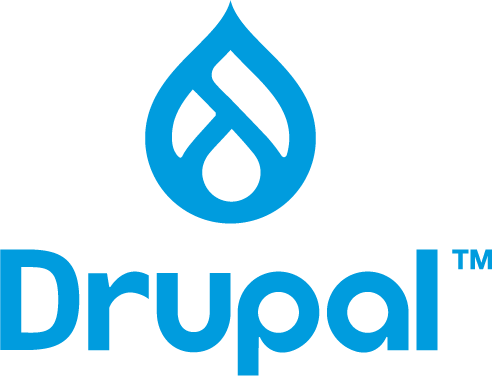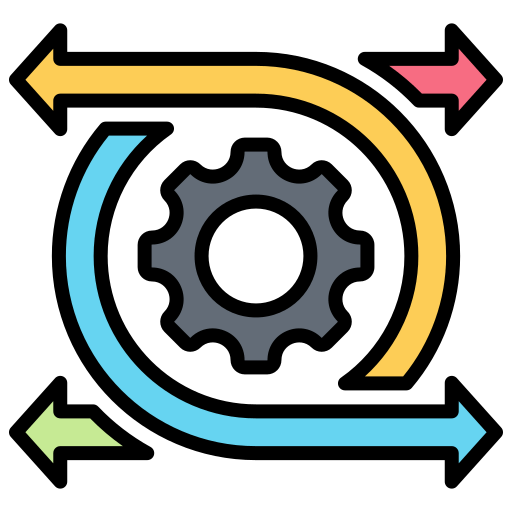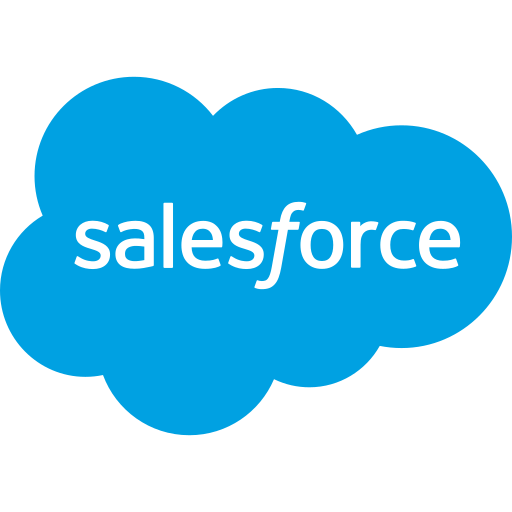Introduction
In the fast-paced digital landscape, choosing the right Content Management System (CMS) is crucial for your online success. For a seasoned web developer or a new small company owner hoping to launch their website, understanding the benefits and drawbacks of the top content management systems is essential. Today, we’re diving deep into the ultimate showdown between WordPress, Drupal, and Joomla.
By the end of this blog, you will have a clear picture of which CMS is best suits your needs. Now let’s see a thorough comparison that will overhaul your web development experience!
1. WordPress: The People’s Champion
Launched in 2003, WordPress has evolved from a simple blogging platform into a versatile Content Management System. It powers more than 40% of all websites on the internet today.

The reason for WordPress’s success can be found in its interface which is easy to use for those who are not very knowledgeable in IT matters as well as for those who are well versed in this field. Its extensive ecosystem of themes and plugins allows users to customize their websites without needing to write code from scratch.
Key Features:
- Open-source software with a GPL license
- Built on PHP and MySQL
- Follows a plugin architecture for extensibility
- Utilizes a template system for themes
Pros:
- User-friendly interface
- Vast plugin ecosystem (58,000+ free plugins)
- Extensive theme library (11,000+ free themes)
- Large community support
- Regular updates and security patches
Cons:
- Can be resource-intensive with many plugins
- Potential security vulnerabilities if not properly maintained
- Limited flexibility for complex, custom functionalities
WordPress is most suitable for bloggers, small and medium-sized entities as well as e-commerce sites that are looking for quick establishment and simple handling.
2. Joomla: The Middle Ground
Joomla, released in 2005, It was a powerful alternative to WordPress, came with more features built in, and allowed you to do more with it. Joomla takes its name from the Swahili term “jumla”, which means everything together or in its entirety depicting the manner in which it started out development-wise as a community-based application.

Joomla is like WordPress when it comes to simplicity while being similar to Drupal. It is equipped with more improved functions for managing users and organizing content right out of the box, which means you can use it for complicated website architectures without vast customization.
Key Features:
- Open-source software written in PHP
- Uses Object-Oriented Programming (OOP) principles
- Follows a Model-View-Controller (MVC) architectural pattern
- Offers multilingual support out of the box
Pros:
- More built-in features than WordPress
- Flexible content organization
- Strong multilingual support
- Active developer community
- Robust access control levels
Cons:
- Steeper learning curve than WordPress
- Fewer extensions and templates compared to WordPress
- It can be challenging for non-technical users
Joomla is best for medium businesses, online magazines and government websites that require complex structures.
3. Drupal: The Powerhouse
Drupal, first released in 2001, began as a message board project and has since evolved into a highly flexible and powerful CMS. Known for its robustness and scalability, Drupal has become the go-to choice for complex, large-scale web projects.

Drupal’s architecture is built around the concept of “nodes” – a flexible content structure that can represent various types of data. This approach, combined with its powerful Views module, allows for complex content relationships and dynamic content display.
Key Features:
- Open-source software written in PHP
- Emphasizes modularity and extensibility
- Offers a powerful taxonomy system for content organization
- Provides extensive APIs for integration with other systems
Pros:
- Highly customizable and flexible
- Excellent for handling large amounts of data
- Strong security features
- Scalable for enterprise-level websites
- Robust taxonomy and content organization
Cons:
- Steep learning curve
- Requires more technical knowledge
- Smaller pool of themes and modules compared to WordPress
Why Drupal Stands Out
While each CMS has its strengths, Drupal shines in several key areas that make it an outstanding choice for certain projects

Unparalleled Flexibility
Drupal’s modular architecture allows for unlimited customization. You can build anything from a simple blog to a complex web application without being constrained by pre-defined structures.

Enterprise-Grade Security
With a dedicated security team and regular updates, Drupal offers top-notch protection against cyber threats. It’s no wonder that governments and large corporations trust Drupal for their sensitive data.

Scalability
As your website grows, Drupal grows with you. Its ability to handle high traffic volumes and manage large amounts of content makes it ideal for enterprises and rapidly expanding businesses.

Multi-site Management
Drupal excels at managing multiple sites from a single codebase, making it perfect for businesses with various brand websites or global presence.

Accessibility
Drupal is committed to web accessibility standards, ensuring your website is usable by people with disabilities – a crucial factor for inclusive web design.
Comparing Key Features
Let’s break down how these CMS giants stack up against each other in critical areas
1. Ease of Use:
- WordPress: 9/10
- Joomla: 7/10
- Drupal: 6/10
WordPress takes the lead in user-friendliness, while Drupal requires more technical know-how.
2. Customization:
- WordPress: 7/10
- Joomla: 8/10
- Drupal: 10/10
Drupal’s flexibility is unmatched, offering endless possibilities for customization.
3. Security:
- WordPress: 6/10
- Joomla: 7/10
- Drupal: 9/10
Drupal’s robust security features make it the safest choice out of the box.
4. Performance:
- WordPress: 7/10
- Joomla: 8/10
- Drupal: 9/10
Drupal’s efficient coding and caching mechanisms give it an edge in performance.
5. SEO Capabilities:
- WordPress: 8/10
- Joomla: 7/10
- Drupal: 8/10
WordPress and Drupal both offer excellent SEO tools and optimization capabilities.

Making the Right Choice
Selecting the perfect CMS depends on your specific needs, technical expertise, and project goals. Here’s a quick guide
1. Choose WordPress if:
- You’re new to web development
- You need a simple blog or small business website
- You want a large selection of themes and plugins.
2. Go for Joomla if:
- You need a balance between functionality and ease of use
- You’re building a community-driven site
- Multilingual support is crucial for your project
3. Opt for Drupal if:
- You’re handling large volumes of data
- Security is a top priority
- You need a highly customizable and scalable solution
- You’re building a complex, enterprise-level website
The Future of Content Management System
As we look ahead, the CMS landscape continues to evolve. Positively, there is rapid adoption of headless CMS solutions by the web developers who now show interest in more flexible configurations. If truth be told, we cannot ignore the fact that integration of AI into CMS is on the rise today and has resulted to improved content creation and user experience. Be keen on the trends as they will guide you in choosing a CMS for your project.

Conclusion:
In the comparison of content management systems, there is no one-size-fits-all. In terms of friendliness and quick start, WordPress stays above board in the market. Joomla offers a middle ground with its balance of features and ease of use. Drupal, while requiring more technical expertise, stands out as a powerhouse for complex, large-scale projects.
Remember, the top CMS for you is the one which aligns with your project goals, technical capabilities and long-term vision. Whether you go for WordPress simplicity, the medium road of Joomla, or Drupal robustness, each platform has its special benefits that can help you develop an awesome website that works well.
About mVerve CMS Services
At mVerve, we specialize in providing top-notch CMS services, with a particular focus on Drupal development. Our team of expert developers understands the intricacies of Drupal’s powerful architecture and can help you harness its full potential for your web projects.
Whether you’re looking to migrate your existing site to Drupal, need custom module development, or want to optimize your Drupal site for performance and security. mVerve has you covered.
With mVerve, you’re not just getting a service provider – you’re partnering with a team that’s passionate about leveraging Drupal’s capabilities to bring your digital vision to life. Our commitment to quality, innovation, and client satisfaction ensures that your Drupal project is in the best hands.
Contact us at contact@mverve.com today to discover how we can elevate your web presence with the power of Drupal!
visit: https://mverve.com/drupal-cms/ to know more about Drupal CMS services.




















